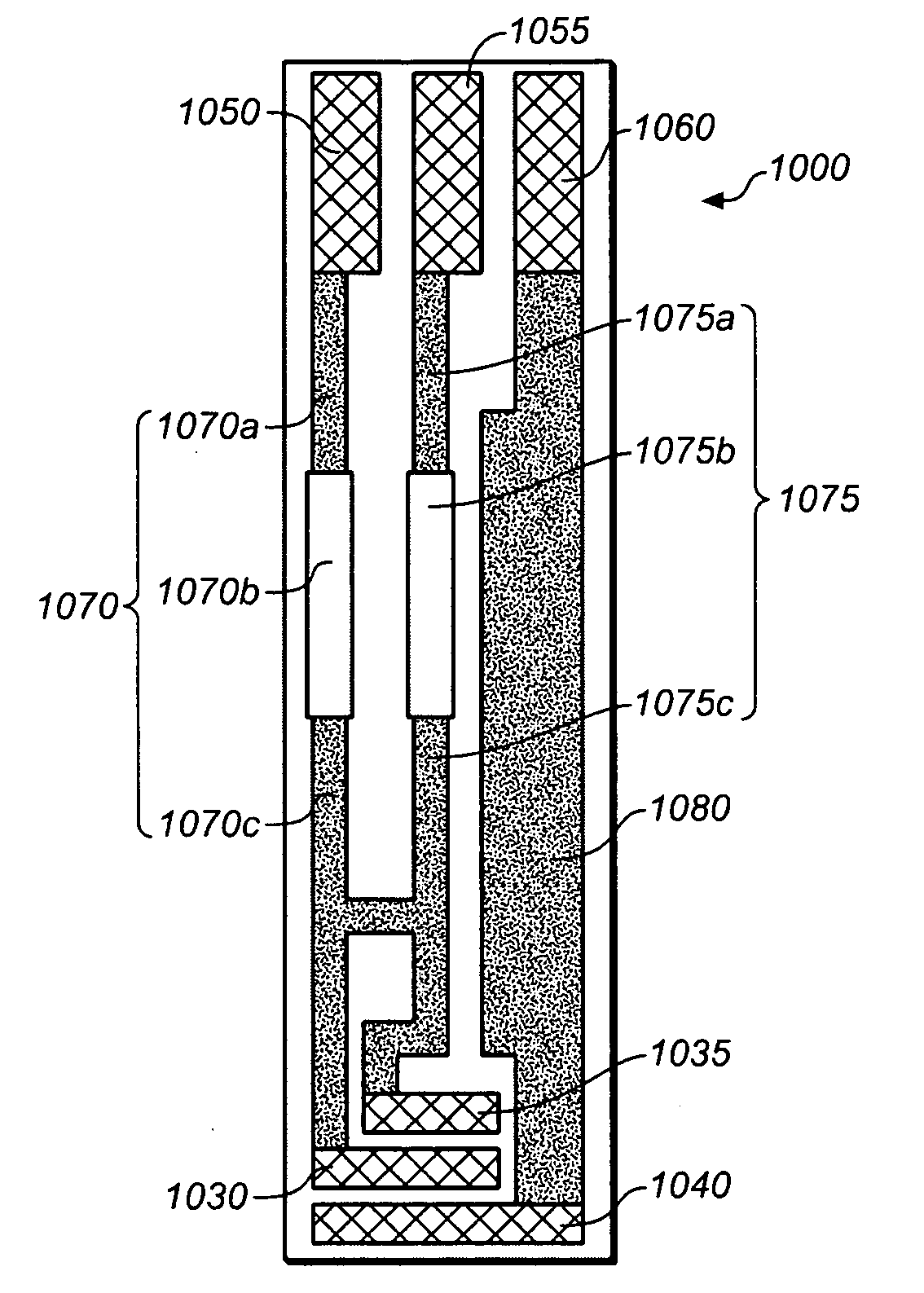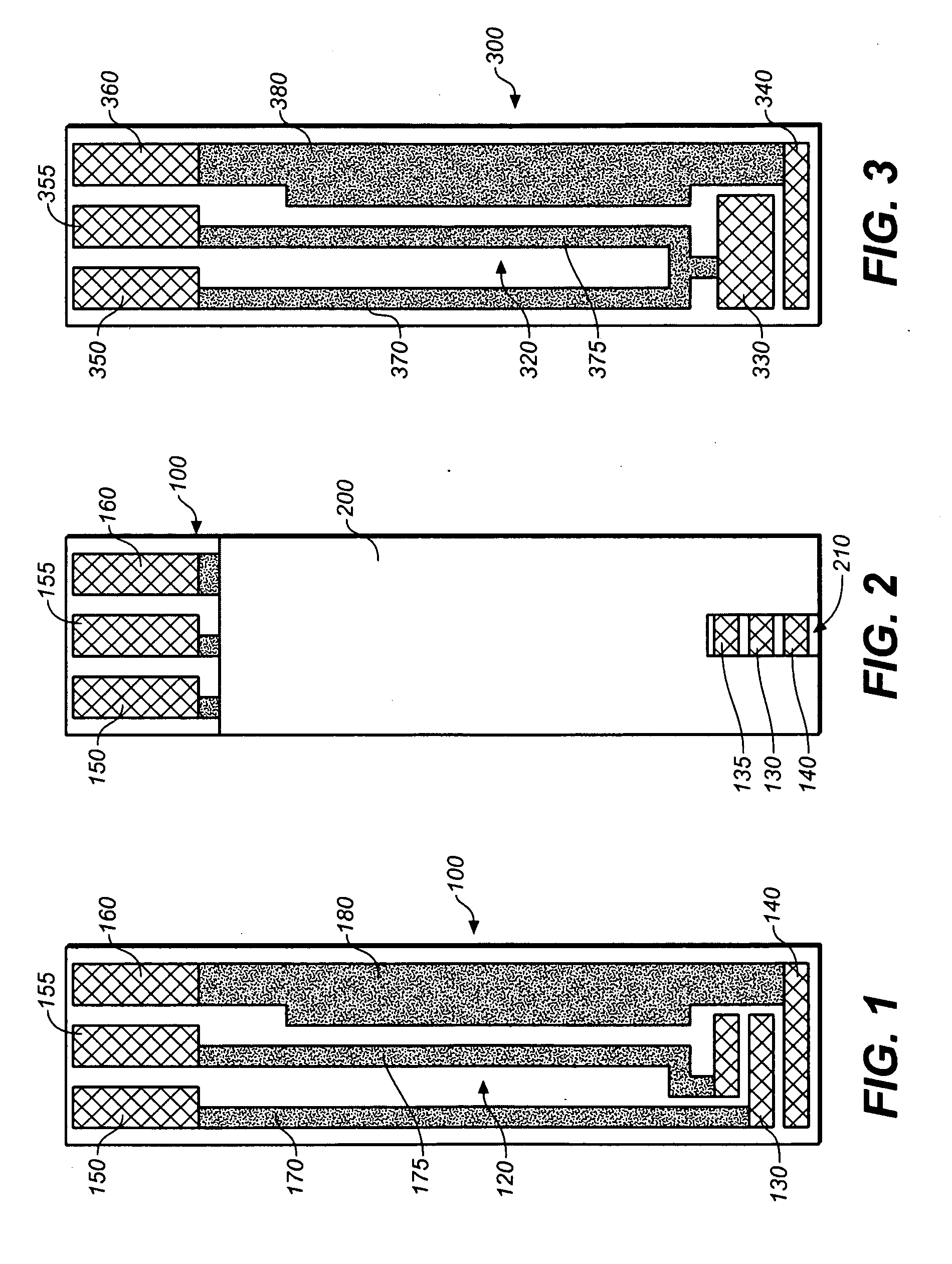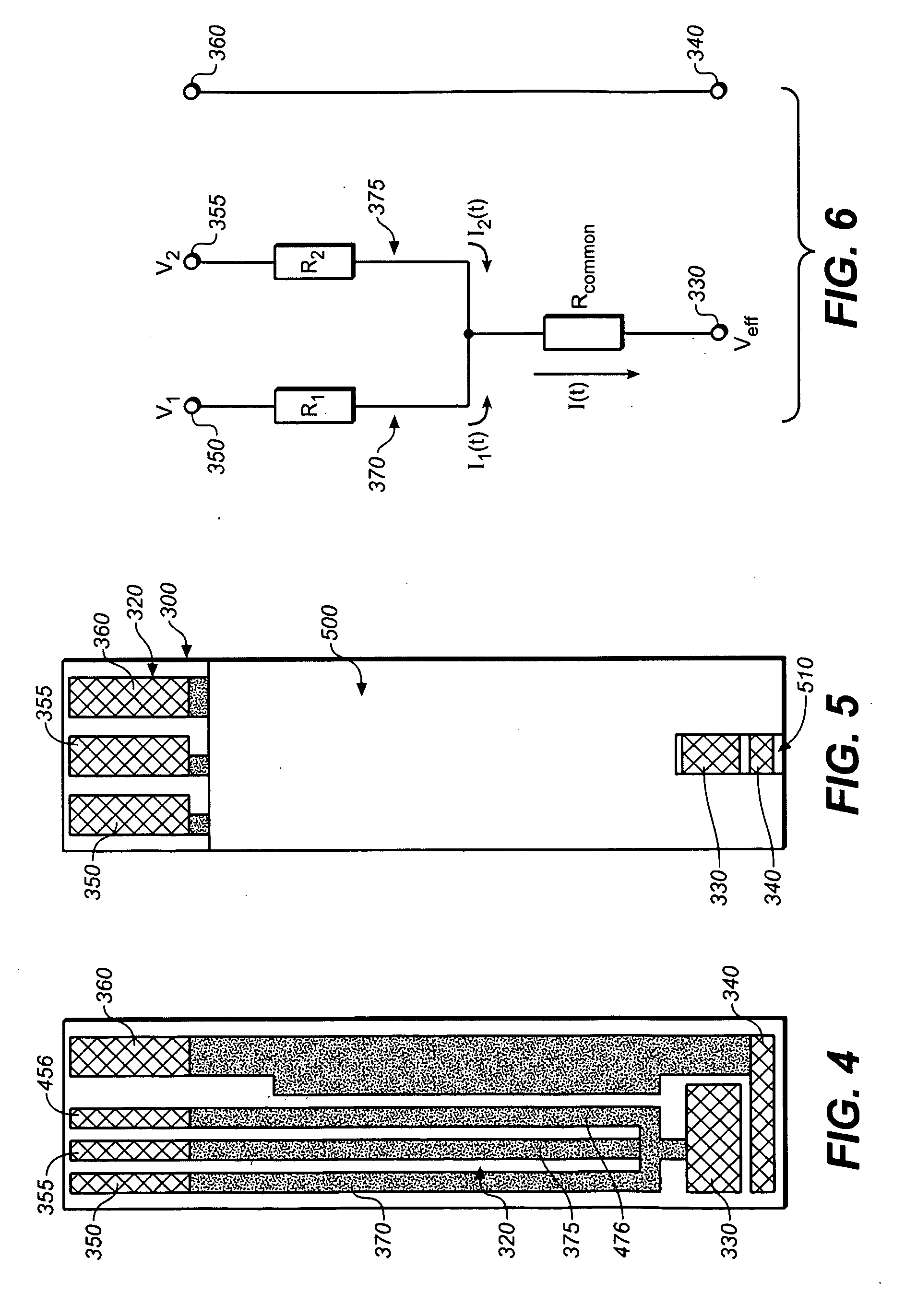Method for manufacturing a strip for use with a multi-input meter
a multi-input meter and strip technology, applied in the direction of instruments, material electrochemical variables, phase/state change investigation, etc., can solve the problems of multi-input meter backward compatibility with dual electrodes, not always necessary or desirable to use test strips, test strips, etc., to increase the current that flows through the electrodes, and the working surface of the electrodes is effectively enlarged.
- Summary
- Abstract
- Description
- Claims
- Application Information
AI Technical Summary
Benefits of technology
Problems solved by technology
Method used
Image
Examples
Embodiment Construction
in conjunction with the accompanying drawings that are first briefly described.
BRIEF DESCRIPTION OF THE DRAWINGS
[0037]The accompanying drawings, which are incorporated herein and constitute part of this specification, illustrate presently preferred embodiments of the invention, and, together with the general description given above and the detailed description given below, serve to explain features of the invention (wherein like numerals represent like elements), of which:
[0038]FIG. 1 shows a prior art test strip having two working electrodes;
[0039]FIG. 2 shows the prior art test strip of FIG. 1 partially covered by a dielectric mask;
[0040]FIG. 3 shows a test strip according to a preferred embodiment having two working links and connectors;
[0041]FIG. 4 shows a test strip according to a preferred embodiment having three working links and connectors;
[0042]FIG. 5 shows the test strip of FIG. 3 covered by a dielectric mask;
[0043]FIG. 6 shows a circuit diagram of a portion of a test stri...
PUM
| Property | Measurement | Unit |
|---|---|---|
| polarizing voltage | aaaaa | aaaaa |
| electrochemical measurement | aaaaa | aaaaa |
| electrochemical test | aaaaa | aaaaa |
Abstract
Description
Claims
Application Information
 Login to View More
Login to View More - R&D
- Intellectual Property
- Life Sciences
- Materials
- Tech Scout
- Unparalleled Data Quality
- Higher Quality Content
- 60% Fewer Hallucinations
Browse by: Latest US Patents, China's latest patents, Technical Efficacy Thesaurus, Application Domain, Technology Topic, Popular Technical Reports.
© 2025 PatSnap. All rights reserved.Legal|Privacy policy|Modern Slavery Act Transparency Statement|Sitemap|About US| Contact US: help@patsnap.com



